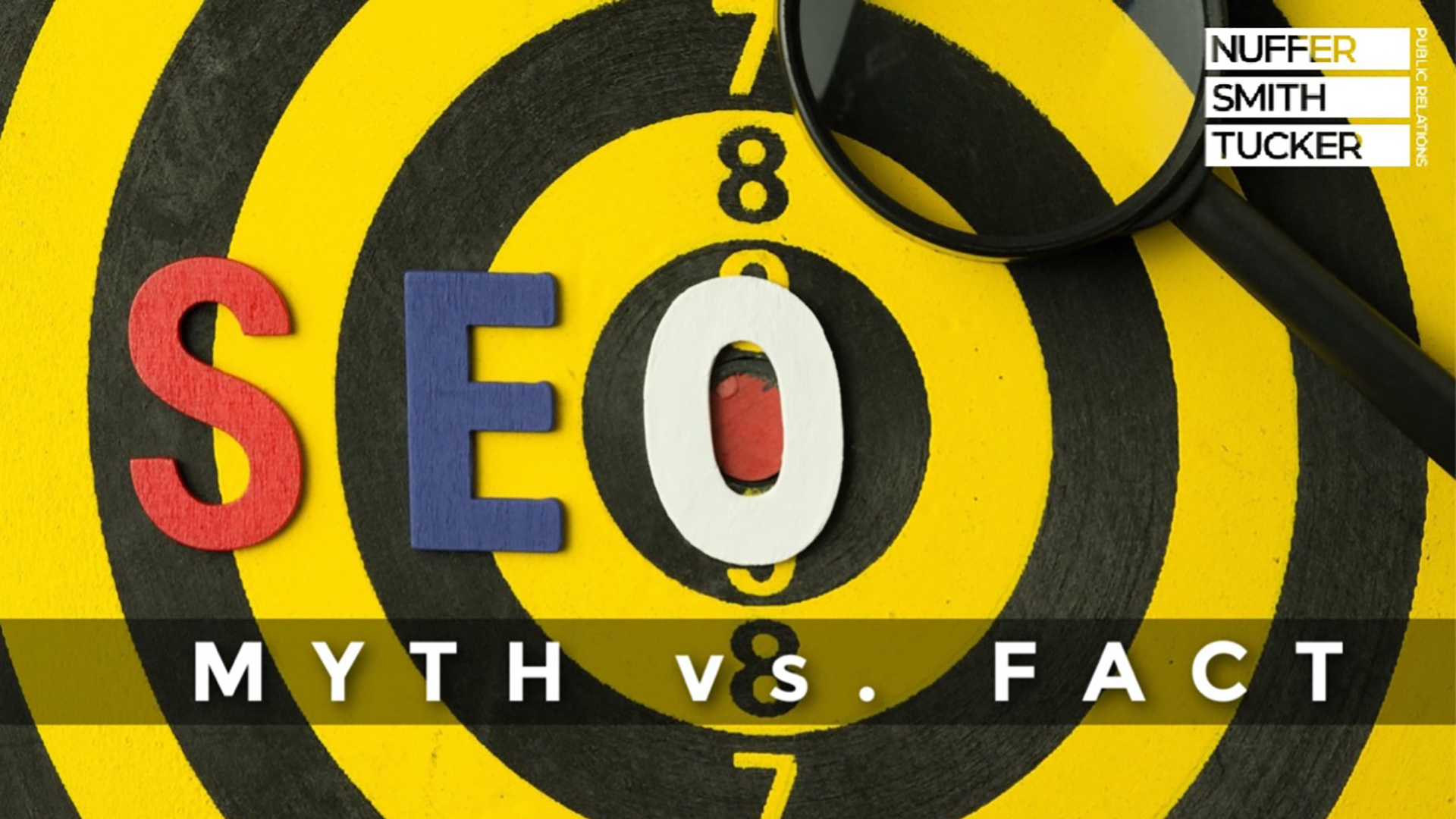Thanks to Google’s secrecy around how its algorithms work and rank sites in search results, there are countless myths and misconceptions around search engine optimization (SEO). At times it can feel overwhelming, especially if you’re unfamiliar with best practices. There is no magic solution when it comes to SEO and because it can take a few months to show results, many may feel discouraged at the start of their SEO journey. The key to mastering SEO and getting it to work for you is to be patient, iterate and stay the course.
Let’s break down some of the most common SEO myths with some good old-fashioned facts.
Myth #1: You’ll see immediate results with SEO changes
Fact: SEO changes aren’t going to immediately result in higher rankings. So first and foremost, be patient. Keep monitoring your changes and adjust accordingly. We recommend using a tried-and-true SEO tool like SEMRush or RankMath to help you find a road map for your SEO improvements. If you’re not seeing any desired results after a few months, then it may be time to reach out to an SEO expert to help you right your path.
Myth #2: SEO is too expensive and time consuming
Fact: While SEO can be a full-time job, it doesn’t have to be. Paying attention to minor details, utilizing your identified keywords, and implementing some of our tips and tricks can go a long way. If the SEO process becomes a burden, then looking for outside help from an SEO firm with previous knowledge of your industry can keep you from wasting your time and money.
Myth #3: SEO is just keyword stuffing
Fact: Keyword stuffing is not going to give you the desired results, even if it might have worked in the past. The fact is, simply stuffing your pages with keywords won’t elevate your SEO rankings. Keep your language human and write like you wish to read. Inserting too many keywords is actually a negative ranking factor. The Alexa blog has a great example of what not to do in regard to keyword stuffing for a keyword phrase of “laptop bag”:
“If you’re looking for the best laptop bag, look no further. Our brand offers the best laptop bag that you could want for business or pleasure. With padding in our liners and a special pocket for your charger, this is the best laptop bag for travel or school.”
This example showcases how easily you can overuse keywords. By all means, include the term “laptop bag” in your copy, there is just no need to repeat yourself multiple times. In best practice, your keyword phrases should flow naturally like any other sentence.
Myth #4: Keywords are the only factor influencing SEO
Fact: Content is still very much the king. Your webpages and content play a critical role in your ranking. Providing your audience with valuable information will encourage your viewers to remain on your site longer. The length of time users stay on your site is a key indicator whether or not your site has valuable information and will, in turn, determine your rank. Useless or filler content will encourage readers to immediately leave your site and thus, negatively affect your SEO score.
Myth #5: Sitemaps are all you need to win at SEO
Fact: While a sitemap is crucial for SEO, it’s not the key to success. Google defines a sitemap as “a file where you provide information about the pages, videos, and other files on your site, and the relationships between them. Search engines like Google read this file to crawl your site more efficiently.” A sitemap simply provides a guide for Google. It has no direct impact on your page rankings, but it does provide the blueprints for the search engines to find your content.
Myth #6: Backlinks are the golden ticket for SEO
Fact: While having other sites link to your content is an amazing SEO tool, it’s not the end-all in creating great SEO. The sites that are linking to your content are also ranked by Google and untrustworthy sites provide no value in your SEO rankings. You want to make sure that you’re also interlinking within your own website pages and posts. SEMRush points out that while receiving backlinks from external sites is a huge win, internal links are often ignored. Make sure you’re linking to other viable content within your own site to build page ranking and authority.
If you or your team is looking to implement an SEO strategy, we’ve talked about a few easy to implement strategies in an earlier blog post. If you’re still need some help, please reach out. We’re always here to help!

